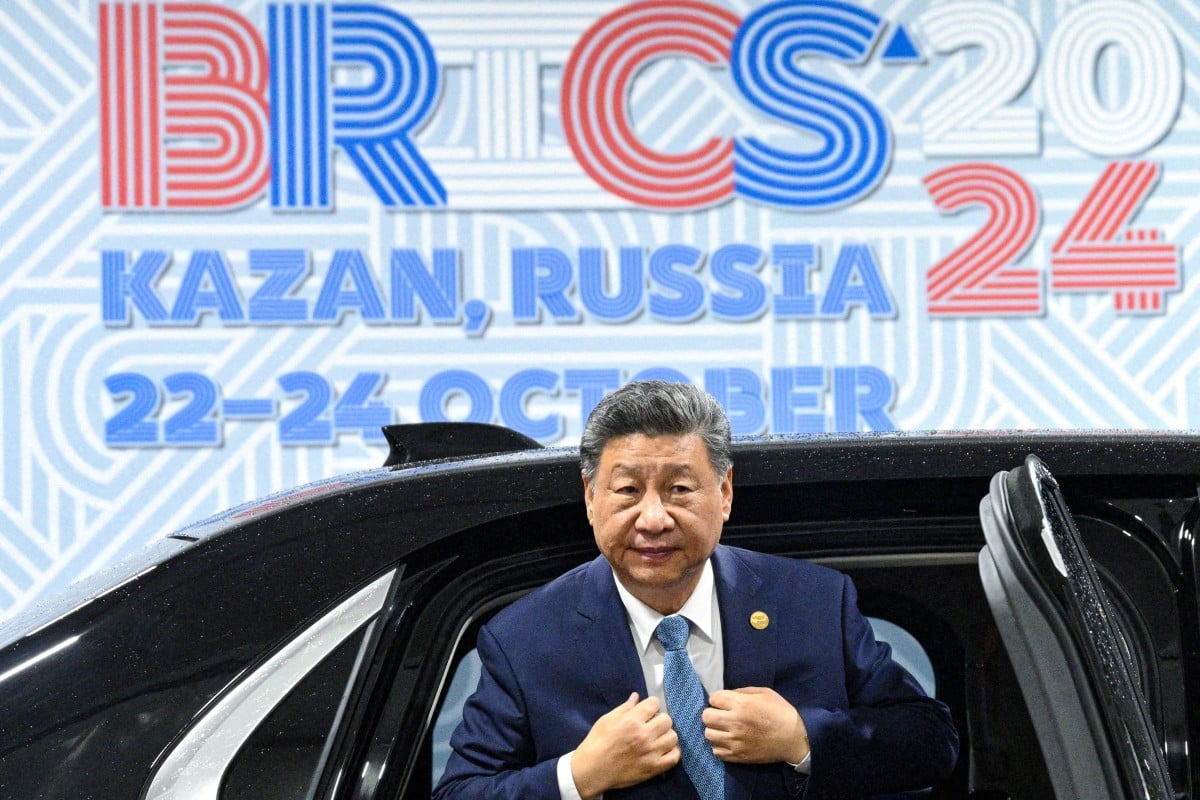With arms wide open to Global South nations, Beijing is growing increasingly louder in calling for a bigger role in multilateral financial architecture, analysts say as they point to China’s slow progress in securing a bigger voice in the Western-dominated World Bank and International Monetary Fund.
Their assessments were underpinned by President Xi Jinping’s strongly worded speech on Wednesday at a Brics summit in Kazan, Russia, where he spoke out against stalled reform of the global governance system while trying to rally the efforts of key emerging markets to “push forward the international financial system to better reflect changes in the global economic landscape”.
The speech also sent a strong message to the World Bank and IMF, which are holding annual meetings this week that have brought hundreds of officials from across the globe to Washington to discuss the state of the global economy, public debt and financial risks. The gatherings also serve to reflect on institutional reform as the Bretton Woods system turns 80.
China, which accounts for around 17 per cent of the world’s gross domestic product and annually contributes to around 30 per cent of global growth, is often regarded as under-represented in the two key institutions – its voting power in the IMF, for instance, is now 6.08 per cent, compared with 6.14 per cent for Japan and 16.49 per cent for the US.
“It’s likely for China’s voting power to be raised. But we should not take it too seriously,” said Chen Fengying, a senior researcher with China Institutes of Contemporary International Relations, explaining that there are some institutions in which China simply would not be given a leading role.
Beijing’s policy circle and researchers typically point to tensions with the United States fanning a wide range of worries, from dollar weaponisation to threats of financial sanctions.
Traditionally, presidents of the World Bank are from the United States, while IMF managing directors are from Europe. Some Chinese now hold high positions such as deputy president or deputy managing director.
At an event hosted by Renmin University last weekend, Chinese academics continued to push for de-dollarisation, and also for cross-border settlement among Brics countries, an association comprising Brazil, Russia, India, China, South Africa and some other emerging economies.
In Wednesday’s speech, Xi mentioned that a slew of cooperation networks will be set up within the Brics framework, and he emphasised the importance of empowering the Shanghai-based New Development Bank (NDB), in which China holds an 18.98 per cent stake – the same as Russia, India, Brazil and South Africa.
China is also the largest individual shareholder of the Beijing-headquartered Asian Infrastructure Investment Bank (AIIB), with a voting power of 26.6 per cent.
The nine-year-old AIIB has expanded its membership to 110, becoming the world’s second-largest multilateral development bank after the World Bank Group, in terms of membership.
“China is not looking to build a new world order from scratch,” he wrote in an article in Enhancing Global Governance in a Fragmented World, an open-access book published this summer.
Instead, it “emphasises reforms to dispute-settlement mechanisms under existing rules, especially within the framework of the UN and the WTO”.



2 world banks competing for global dominance will be a war starting event.